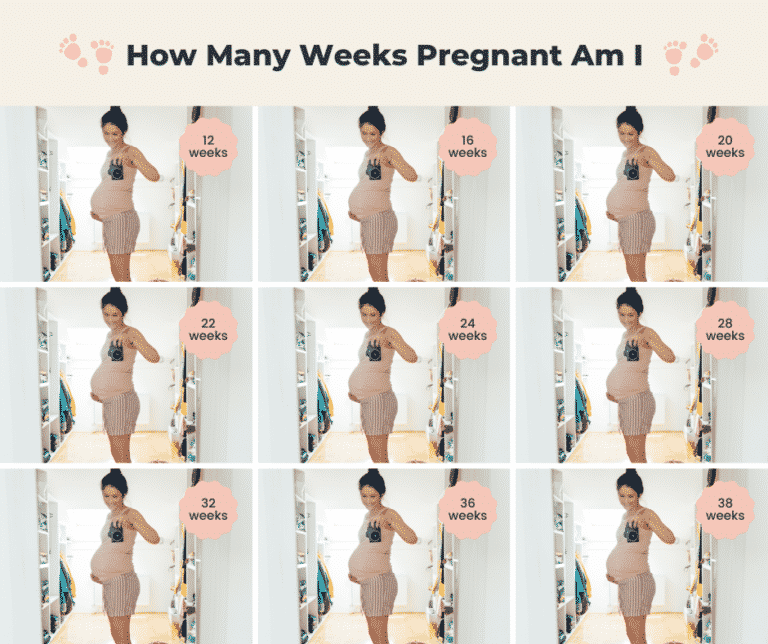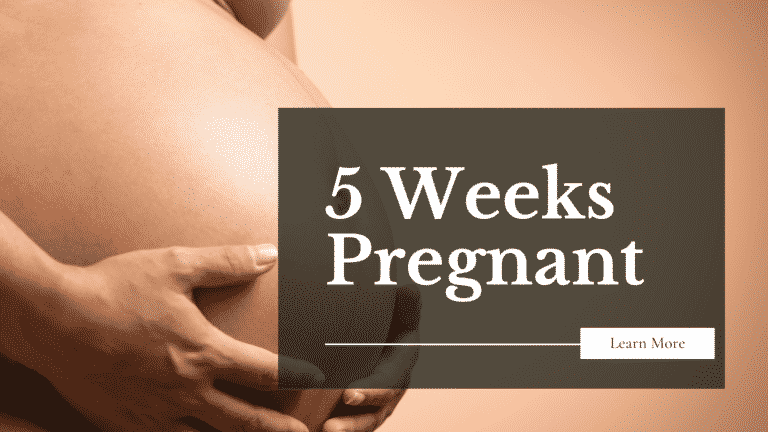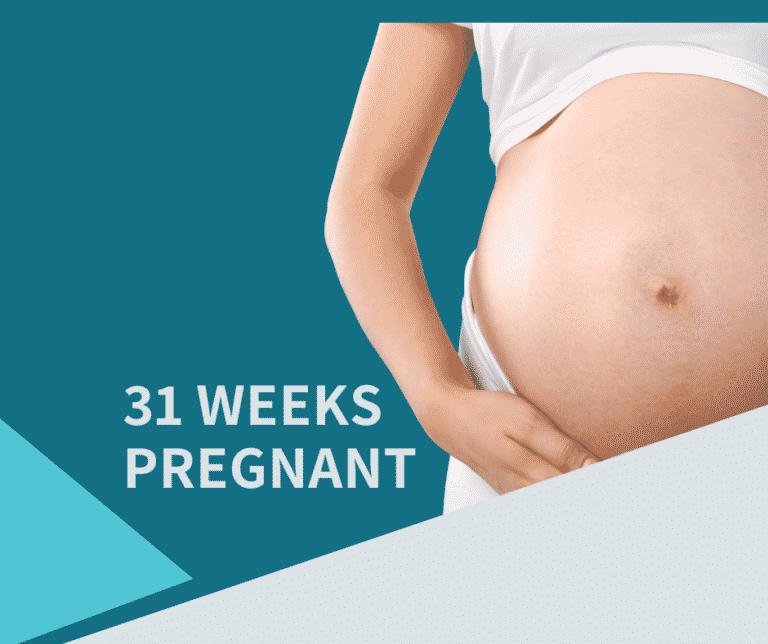40 Weeks Pregnant: Signs, Tips, Symptoms & Baby’s Development
Published on April 13, 2022 – Last Updated on October 18, 2022
Around 40 weeks pregnant, most women can feel their baby kicking and move around. This is a sign that your little one is getting ready to be born! As you near the end of your pregnancy, it’s essential to be aware of the signs that labor may start soon. Most women go into labor within a few days of their due date, but sometimes labor starts earlier or later than expected. Knowing what to look for can help you be prepared when your baby arrives. If you have any concerns, always contact your doctor or midwife. Congratulations on nearing the end of your pregnancy!
In this blog post, we can discuss your health to tips for your health! Sound interesting! Right? Let’s get started:
Mom’s Body at 40 Weeks Pregnant
At 40 weeks pregnant, most moms feel anxious and excited to meet their baby. While it is impossible to predict precisely when labor will begin, some signs indicate that labor may be imminent. For example, early and active labor may be accompanied by a bloody show or the loss of the mucus plug that seals the cervix during pregnancy. In addition, some moms may experience an increase in Braxton Hicks contractions or false labor pains. However, the most reliable sign of labor is when contractions become regular, strong, and close together. You can read more on contractions on our site: contraction app, how to track contractions & contractions counter.
When labor does begin, several things can help mom feel more comfortable. For example, a warm bath may help to ease muscle tension and pain. In addition, staying hydrated and eating light snacks can help keep the mom’s energy up before the baby’s arrival.
Read more about what to expect during the 40th week of pregnancy: how far along am I based on due date and stage of pregnancy week by week.
40 weeks pregnant: What are your symptoms?
Around 40 weeks into your pregnancy, you may start to experience early and active labor. This can involve a range of symptoms, including contractions, back pain, and a feeling of pressure in your pelvis. You may also notice leaking breast milk and feel an urge to Nest. Taking a warm bath can help to relax your muscles and ease the pain. You may also lose your mucus plug and pass some amniotic fluid as your labor progresses.
These are all typical signs that labor is beginning. However, if you experience severe symptoms, such as heavy bleeding or severe abdominal pain, it’s essential to contact your healthcare provider.
Some of the most common symptoms of 40 weeks pregnant are as follows:
Painless contractions.
You may start to experience painless contractions known as Braxton Hicks contractions. These are light and irregular tightening of the muscles in your womb (uterus) that occur as your body prepares for labor.
Tiredness and sleeping problems.
You may find you’re more tired than usual and have difficulty getting to sleep. Your body is working hard to grow and support your baby.
Stretch marks.
You may notice stretch marks on your skin, particularly on your stomach, breasts, and thighs. Stretch marks are small lines that can appear as your skin stretches due to pregnancy.
Swollen and bleeding gums.
While you are 40 weeks pregnant, gums may swell and bleed during pregnancy, particularly if you’re pregnant with more than one baby (multiple pregnancies) or if you have gum disease. See your dentist if you experience these problems.
Pains.
There are pains on the side of your belly caused by your expanding womb (round ligament pains).
As your womb grows, it will pressure the ligaments that hold it in place. This can cause pain on the sides of your belly.
Piles.
Hemorrhoids (piles) are swollen and inflamed veins in the rectum and around the anus. They’re a common problem during pregnancy and can be quite painful.
Headaches.
You may start to experience headaches as your body changes and grows. However, many women find that their headaches improve after the baby is born.
Backache.
Backache is a common problem during pregnancy, caused by the extra weight you’re carrying and the changes in your hormone levels. See your doctor if you have severe or persistent pain.
40 Weeks Fetus
A 40-week fetus is the most precious thing in the world. They are developing at a fantastic rate, and their little bodies are so perfect. Every day, they are growing and changing and becoming more and more excellent. Finally, at 40 weeks, they are ready to be born into the world and start their lives.
However, some people believe that a 40-week fetus is not ready to be born. They think they need more time to develop and are not fully formed. This is not true. A 40-week fetus is fully developed and ready to be born. They are healthy and robust and will thrive outside the womb.
If you are pregnant, please do not wait longer than 40 weeks to have your baby. They are ready to be born, and they need to be in the world as soon as possible. Trust your body, trust your baby, and let them come into the world when they are ready. Forty weeks is a perfect time!
Tips for you this week – Pregnancy Week 40
You have now reached the final week of your pregnancy, and while you may be feeling weary, remember that you are so close to meeting your new baby! Here are some things to keep in mind during this final week:
It is normal to feel anxious as your due date approaches. However, take some deep breaths and focus on the positive – you will be a mom soon!
Make sure you are taking care of yourself by eating healthy foods and staying hydrated. Your body needs extra energy to support both you and your baby. Some important tips are as follows:
- Relieve belly pain in the third trimester.
- Try pregnancy massage and warm baths.
- Use a pregnancy pillow (or other pillows) for support.
- Find the best pregnancy sleeping positions.
- Keep up the third-trimester exercise.
- More ways to handle third-trimester discomfort.
Relieve belly pain in the third trimester
If you are experiencing pain in your stomach or lower back, there are a few things you can do to help relieve the discomfort:
- Stay hydrated. Drink plenty of water and other fluids throughout the day.
- Take it easy. Avoid strenuous activities and heavy lifting.
- Ease up on spicy foods.
- Use a heating pad. Place a heating pad on your stomach or lower back to help soothe the pain.
- Place a cold pack on your stomach or lower back. If the heat does not help, try using a cold pack instead.
Try pregnancy massage and warm baths.
Massage can be a great way to relieve tension and stress during pregnancy. It can also help improve circulation and reduce pain. There are a few different ways to give yourself a massage:
- Sit in a comfortable position and use your hands to massage your stomach and lower back.
- Use a foam roller or tennis ball to massage your back.
- Take a warm bath. The heat will help relax your muscles and ease the pain.
Use a pregnancy pillow (or other pillows) for support.
A pregnancy pillow is a great way to get extra support during the third trimester. It can help you sleep more comfortably and relieve your stomach and back pressure. You can also try using other pillows, such as:
- Pillow between your legs. This will help support your growing belly and relieve stress on your hips.
- Pillow between your upper body and knees. This will help keep your spine in alignment and reduce lower back pain.
Find the best pregnancy sleeping positions.
Sleeping during pregnancy can be difficult, especially in the third trimester. Here are a few tips for finding the best sleeping position at 40 weeks pregnant:
- First, lie on your side with a pillow between your legs.
- Next, lie on your back with a pillow under your knees.
- Third, lie on your stomach with a pillow under your chest.
- Use a wrap or maternity belt to help keep you comfortable while sleeping.
If you wake up during the night, try switching positions until you find one that is comfortable.
Finally, keep up the third-trimester exercise.
Exercise is a great way to stay healthy and fit during pregnancy. It can also help relieve pain and tension. However, you should stop exercising if you are feeling tired or uncomfortable. Here are a few exercises that are safe for the third trimester:
- Light cardio exercises such as walking or swimming.
- Prenatal yoga or Pilates.
- Strengthening exercises such as squats or lunges.
- Stretching exercises such as pelvic tilts or cat/cow pose.
If you are not sure whether an exercise is safe to do, ask your doctor or midwife for advice.
40 weeks pregnant: Your baby’s development
When you’re 40 weeks pregnant, your baby is about the size of a watermelon. The baby’s head remains visible, but the rest of the body is slowly starting to descend into the pelvis. As a result, you may feel more pressure in your pelvic region as the baby drops. You may also notice that baby’s movement has changed. Instead of big kicks, you’ll feel smaller movements as the baby stretches and yawns.
The baby’s bones are fully formed but still soft at this point in development. The skull is made up of several plates that will later fuse together. The baby’s lungs are mature, but they still need to practice breathing amniotic fluid. In the final weeks of pregnancy, the baby will continue to gain weight and store fat. This fat will help keep the baby warm after birth.
Your body is also preparing for labor. The cervix begins to soften and thin, and the uterus muscles start to contract. If delivery does not begin independently, your doctor may induce artificially beginning contractions.
Doctor’s Visit:
At 40 weeks pregnant, it’s time for your final doctor’s visit before your baby is born. You will likely go to the hospital or birthing center to be induced into labor if you haven’t gone into labor on your own by this point. Early and active labor typically lasts around eight hours but can vary depending on the individual. It is vital to stay in close contact with your healthcare provider to ensure that both you and your baby are healthy and safe. They may take some tests or discuss your previous test and birth canal with you. Feel free to answer them.
The due date of your hospital stay will be determined based on your individual circumstances. However, most women induced at 40 weeks pregnant will give birth within a week of their induction.
FAQs
What causes a baby to be overdue?
There are many possible causes for a baby to be overdue, including:
- The baby’s position in the uterus.
- The baby’s size.
- The placenta’s function.
- The mother’s health and diet.
- The mother’s age.
- The baby’s sex.
Many things can cause a baby to be overdue, and it is best to speak with your healthcare provider if you are concerned about your baby’s due date.
Are 40 weeks and 2 days overdue?
A baby can be overdue by a few days, but it is essential to speak with your healthcare provider if you are concerned. Most babies are born within a week of their due date.
What happens if you pass 40 weeks pregnant?
If you reach 40 weeks pregnant and have not gone into labor on your own, your doctor may induce labor by artificially starting contractions. Labor is typically induced in the early stages when it is most effective. Most women induced at 40 weeks will give birth within a week of their induction.
Other Pregnancy Weeks:
- 1 Week Pregnant
- 2 Weeks Pregnant
- 3 Weeks Pregnant
- 4 Weeks Pregnant
- 5 Weeks Pregnant
- 6 Weeks Pregnant
- 7 Weeks Pregnant
- 8 Weeks Pregnant
- 9 Weeks Pregnant
- 10 Weeks Pregnant
- 11 Weeks Pregnant
- 12 Weeks Pregnant
- 13 Weeks Pregnant
- 14 Weeks Pregnant
- 15 Weeks Pregnant
- 16 Weeks Pregnant
- 17 Weeks Pregnant
- 18 Weeks Pregnant
- 19 Weeks Pregnant
- 20 Weeks Pregnant
- 21 Weeks Pregnant
- 22 Weeks Pregnant
- 23 Weeks Pregnant
- 24 Weeks Pregnant
- 25 Weeks Pregnant
- 26 Weeks Pregnant
- 27 Weeks Pregnant
- 28 Weeks Pregnant
- 29 Weeks Pregnant
- 30 Weeks Pregnant
- 31 Weeks Pregnant
- 32 Weeks Pregnant
- 33 Weeks Pregnant
- 34 Weeks Pregnant
- 35 Weeks Pregnant
- 36 Weeks Pregnant
- 37 Weeks Pregnant
- 38 Weeks Pregnant
- 39 Weeks Pregnant
- Birth Plan
- Baby Due Date Calculator
- EDD Calculation
- how many weeks pregnant I am







